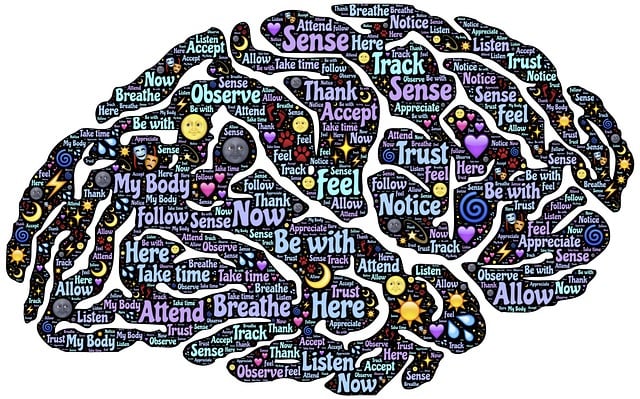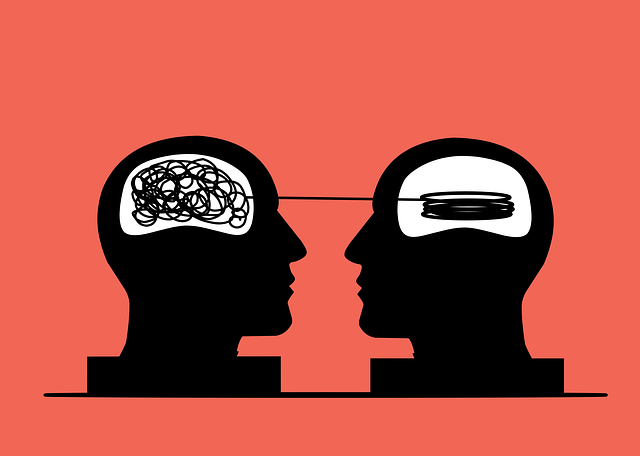Mental health policies play a vital role in supporting young individuals (aged 0-19) by providing access to essential therapy services, particularly during their formative years. Early interventions like Mental Health Education and evidence-based practices, such as mindfulness meditation, can profoundly impact their well-being. Despite global challenges like limited resources and stigma, targeted strategies like digital therapy platforms and advocacy campaigns are crucial to bridge gaps in care, ensuring young people receive the support they need for long-term resilience and a brighter future. Integrating tailored therapeutic approaches into mainstream services is essential for proactive mental health management.
Mental health policies significantly shape the accessibility and quality of care for young individuals struggling with their psychological well-being. This article delves into three key areas: understanding the intricate web of mental health policy and its profound impact on youth, examining the current state of therapy access for children, adolescents, and teens, and exploring advocacy strategies to drive improvements in mental health services tailored for this vulnerable population. By focusing on therapy for young children, adolescents, and teens, we aim to shed light on actionable steps towards enhancing their mental health outcomes.
- Understanding Mental Health Policy and Its Impact on Young Individuals
- The Current State of Therapy Access for Children, Adolescents, and Teens
- Advocacy Strategies to Improve Mental Health Services for Youth
Understanding Mental Health Policy and Its Impact on Young Individuals

Mental health policies play a pivotal role in shaping the well-being of young individuals, as their formative years are crucial for developing resilience and coping mechanisms. These policies, often designed to support therapy for young children, adolescents, and teens, directly impact access to essential mental health services. Early intervention through specialized programs, such as Mental Health Education Programs Design tailored for this age group, can be life-changing. They foster compassion cultivation practices and mindfulness meditation, helping youth navigate stress, anxiety, and other common mental health challenges.
By integrating these evidence-based approaches into policy frameworks, governments can ensure that young people receive the care they need to thrive. Such initiatives not only address immediate mental health concerns but also contribute to long-term resilience, enabling a brighter future for this vulnerable population.
The Current State of Therapy Access for Children, Adolescents, and Teens

Access to therapy for young children, adolescents, and teens remains a significant challenge in many parts of the world. Despite growing awareness about the importance of mental wellness in this age group, disparities exist in ensuring timely and adequate treatment. Many barriers contribute to this issue, including limited resources allocated to youth mental health services, geographical constraints that hinder access to specialized therapists, and societal stigma surrounding emotional struggles among young people. As a result, many children and teens face prolonged periods without the necessary support, exacerbating existing conditions and potentially leading to more severe outcomes.
The current landscape demands targeted interventions to improve therapy accessibility. Incorporating innovative solutions such as digital platforms offering online therapy sessions can bridge geographical gaps and reduce costs. Moreover, encouraging mental wellness journaling exercises and self-awareness practices in schools can equip young individuals with coping strategies while promoting early detection of potential issues. Crisis intervention guidance tailored for this demographic is also crucial, ensuring that adolescents and teens have immediate support when facing emotional crises.
Advocacy Strategies to Improve Mental Health Services for Youth

Advocacy plays a pivotal role in shaping mental health policies and ensuring youth receive access to essential services. One effective strategy is raising awareness through educational campaigns targeted at both the public and policymakers. By highlighting the unique challenges faced by young individuals, such as peer pressure, academic stressors, and identity formation issues, which often contribute to mental health concerns, advocates can foster empathy and encourage early intervention. Engaging parents, educators, and community leaders in these conversations is crucial for normalizing open discussions about mental wellness.
Additionally, incorporating therapeutic approaches tailored for young children, adolescents, and teens into mainstream services is imperative. This includes promoting evidence-based practices like mindfulness and journaling exercises to enhance stress management skills, as well as risk management planning specifically designed for this demographic. Such initiatives ensure that mental health guidance becomes an integral part of youth development, addressing issues proactively rather than reacting to crises.
Mental health policy analysis highlights the urgent need for improved access to therapy for young children, adolescents, and teens. The current state of mental health services falls short in many regions, exacerbating existing disparities. Advocacy strategies must be multi-faceted, encompassing increased government funding, policy reforms, and community engagement to ensure that all youth receive the support they need. By prioritizing mental health as a fundamental component of overall well-being, we can create a brighter future for our youngest citizens.








